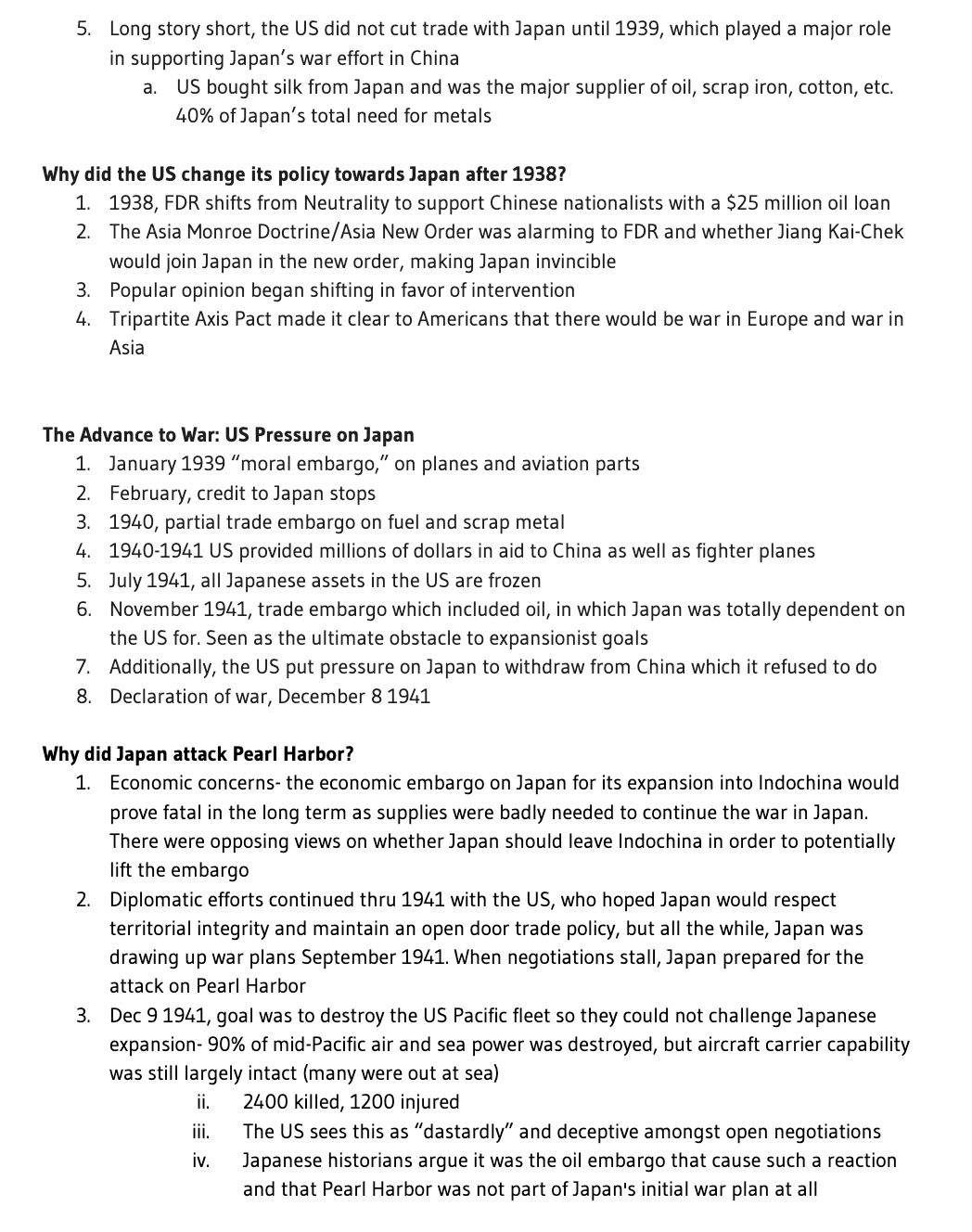Why did the US change its policy towards Japan after 1938, and why did Japan attack Pearl Harbor?

Understand the Problem
The question is seeking to understand the shifts in U.S. policy towards Japan leading up to World War II, including the events that prompted Japan to attack Pearl Harbor. It highlights key factors in U.S.-Japan relations and the historical context surrounding these actions.
Answer
US policy changed due to Japan's expansion. Japan attacked Pearl Harbor due to US embargo.
The US changed its policy toward Japan after 1938 due to concerns about Japan's expansion and a shift in public opinion. The economic embargo by the US led Japan to attack Pearl Harbor on December 7, 1941, aiming to cripple the US Pacific Fleet.
Answer for screen readers
The US changed its policy toward Japan after 1938 due to concerns about Japan's expansion and a shift in public opinion. The economic embargo by the US led Japan to attack Pearl Harbor on December 7, 1941, aiming to cripple the US Pacific Fleet.
More Information
The embargo on Japan by the US, including oil exports, critically threatened Japan's ability to maintain its military and economic expansion, driving them to attack Pearl Harbor as a preemptive move.
Tips
Understand the context of economic and political pressures of the time to fully grasp why the US and Japan interacted this way.
Sources
- Japan, China, the United States and the Road to Pearl Harbor, 1937 ... - history.state.gov
- The Path to Pearl Harbor | The National WWII Museum | New Orleans - nationalww2museum.org
- Why did Japan attack Pearl Harbor? | Imperial War Museums - iwm.org.uk
AI-generated content may contain errors. Please verify critical information